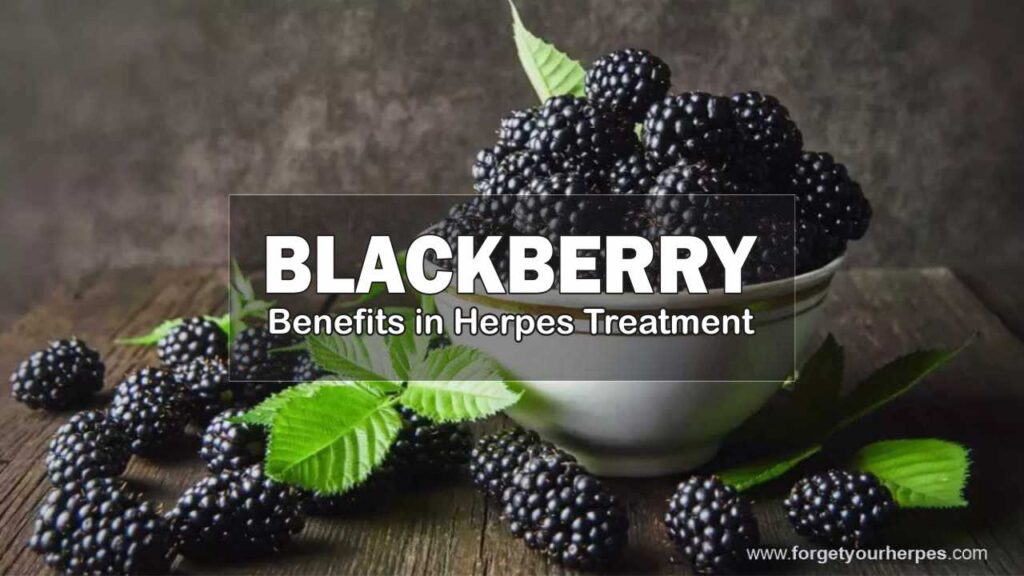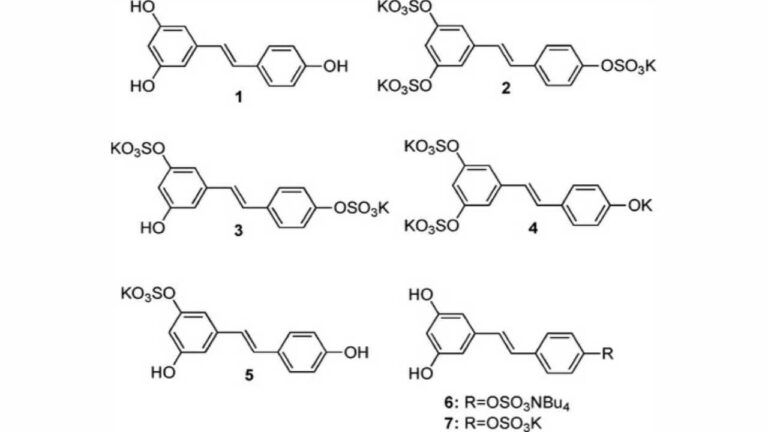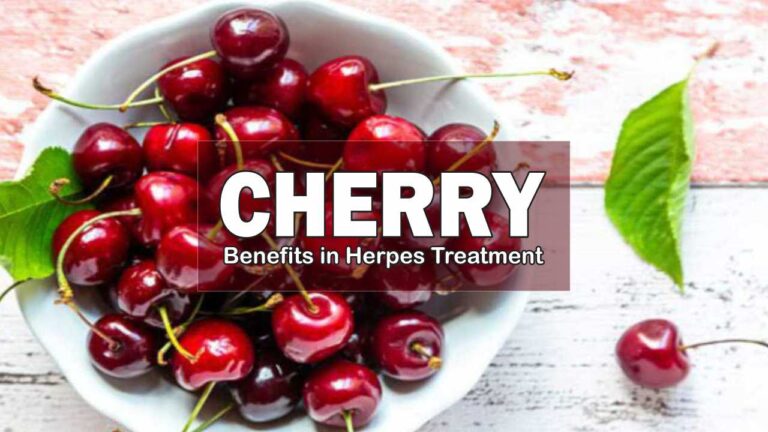Blackberries are known to be rich in natural antioxidants and possess anti-inflammatory properties, making them a potential treatment for herpes. Some studies suggest that blackberry extracts may be effective against herpes simplex virus type 1 (HSV-1) and type 2 (HSV-2).

Research on Blackberries and Herpes Treatment
There is some research suggesting that blackberries may have benefits in the treatment of herpes.
The study published in the Journal of Medical Virology in 2014 evaluated the effectiveness of blackberry extract against the herpes simplex virus type 1 (HSV-1), which is one of the main causes of cold sores. The study tested blackberry shoot extract on human cells infected with HSV-1 and found that it was able to inhibit the replication of the herpes virus. Additionally, the blackberry extract reduced the formation of viral plaques by up to 99.9%, indicating a strong potential antiviral effect against herpes.
The researchers attributed the antiviral activity of blackberry extract to a compound called ellagic acid, which is naturally found in blackberries. Ellagic acid is known to have antioxidant and anti-inflammatory properties, and is believed to play a role in inhibiting herpes virus replication.
Another study published in the journal Food Chemistry in 2015 investigated the effect of blackberry extract against herpes simplex virus type 2 (HSV-2), which is one of the most common causes of genital herpes.
The study tested blackberry extract on human cells infected with HSV-2 and found that it was able to inhibit the replication of the herpes virus.
The researchers also found that blackberry extract had a stronger antiviral effect when administered immediately after infection with HSV-2. They concluded that blackberry extract has potential as a complementary treatment for genital herpes.
In another study published in the Journal of Applied Microbiology in 2017, the potential of blackberry extract in the treatment of cold sores caused by herpes simplex virus type 1 (HSV-1) was evaluated.
The study tested blackberry extract on human cells infected with HSV-1 and found that it was able to inhibit the replication of the herpes virus.
The effect of blackberry extract was also evaluated in mice infected with HSV-1. They found that topical application of blackberry extract significantly reduced the severity and duration of lesions caused by the herpes virus compared to the control group.
The researchers believe that the antiviral activity of blackberry extract is due to the presence of antioxidant compounds such as anthocyanins, which are abundant in blackberries. Anthocyanins have anti-inflammatory and immunomodulatory properties that may help reduce inflammation and improve the immune response against HSV-1 herpes.
Although these research and results are promising, it is important to note that researchers need to conduct more studies before considering blackberries as a proven treatment for herpes.
Benefits of Blackberries in Treating Herpes
Blackberries are a rich source of nutrients that can aid in the treatment of herpes, especially with regards to cold sores.
Some of the vitamins and nutrients found in blackberries include:
Anthocyanins
Blackberries are rich in anthocyanins, which are antioxidant compounds that can help reduce inflammation and improve the body’s immune response.
Vitamin C
Vitamin C is an important nutrient for the immune system, helping to fight viral infections such as herpes. Blackberries are a good source of vitamin C.
Vitamin E
Vitamin E is another important antioxidant that can help reduce inflammation and improve wound healing. Blackberries are a rich source of vitamin E.
Ellagic acid
Ellagic acid is a compound found in blackberries that has antiviral properties and can help inhibit the viral replication of both HSV-1 and HSV-2.
Gallic acid
Gallic acid is another compound found in blackberries that has antiviral properties and can help fight herpes.
In addition, blackberries are also a good source of fiber, which can help regulate the digestive system and improve nutrient absorption. Blackberries are also a good source of water, which can help keep the body hydrated and improve immune function.
Nutritional Table of Blackberry
Here’s a possible version of the nutritional table of blackberries with percentage daily values:
Nutrition Facts Serving size: 1 cup (144g)
| Nutrient | Amount per serving | % Daily Value |
|---|---|---|
| Calories | 62 | 3% |
| Total Fat | 0.7g | 1% |
| Saturated Fat | 0g | 0% |
| Trans Fat | 0g | 0% |
| Cholesterol | 0mg | 0% |
| Sodium | 1mg | 0% |
| Total Carbohydrate | 14.7g | 5% |
| Dietary Fiber | 7.6g | 27% |
| Total Sugars | 7g | |
| Protein | 2g | 4% |
| Vitamin D | 0mcg | 0% |
| Calcium | 42mg | 3% |
| Iron | 0.9mg | 5% |
| Potassium | 233mg | 5% |
| Vitamin A | 308IU | 6% |
| Vitamin C | 30.2mg | 50% |
| Vitamin E | 1.7mg | 8% |
| Vitamin K | 29.1mcg | 36% |
| Thiamin | 0.02mg | 2% |
| Riboflavin | 0.03mg | 2% |
| Niacin | 0.6mg | 3% |
| Vitamin B6 | 0.1mg | 5% |
| Folate | 36mcg | 9% |
| Pantothenic Acid | 0.3mg | 3% |
| Phosphorus | 33mg | 3% |
| Magnesium | 29mg | 7% |
| Zinc | 0.5mg | 3% |
| Copper | 0.1mg | 6% |
| Manganese | 0.9mg | 47% |
The percentage daily values are based on a 2,000 calorie diet and may vary depending on your individual needs.
How to Include Blackberries in a Diet to Support Herpes Treatment
Adding blackberries to your diet can help support the treatment of herpes. Here are some ways to incorporate blackberries into your diet:
Eat fresh
The simplest way to include blackberries in your diet is to eat them fresh. Add blackberries to salads, yogurt, oatmeal, or enjoy them as a healthy snack.
Smoothies
Blend fresh blackberries with other fruits and yogurt or milk to make a healthy and nutritious smoothie.
Blackberry tea
Add dried blackberries to hot water and let it boil for a few minutes to make a healthy tea.
Jams and jellies
If you like something sweeter, blackberry jams and jellies can be a great option. Just make sure to choose products without added sugar or artificial sweeteners.
Natural supplements
If you have difficulty finding them fresh, you may consider taking natural supplements that contain blackberry nutrients.
Summary
Remember that blackberry should be used as part of a balanced diet and not as a substitute for conventional medical treatment. Always consult a healthcare professional before making significant changes to your diet or starting any alternative treatment for herpes.




